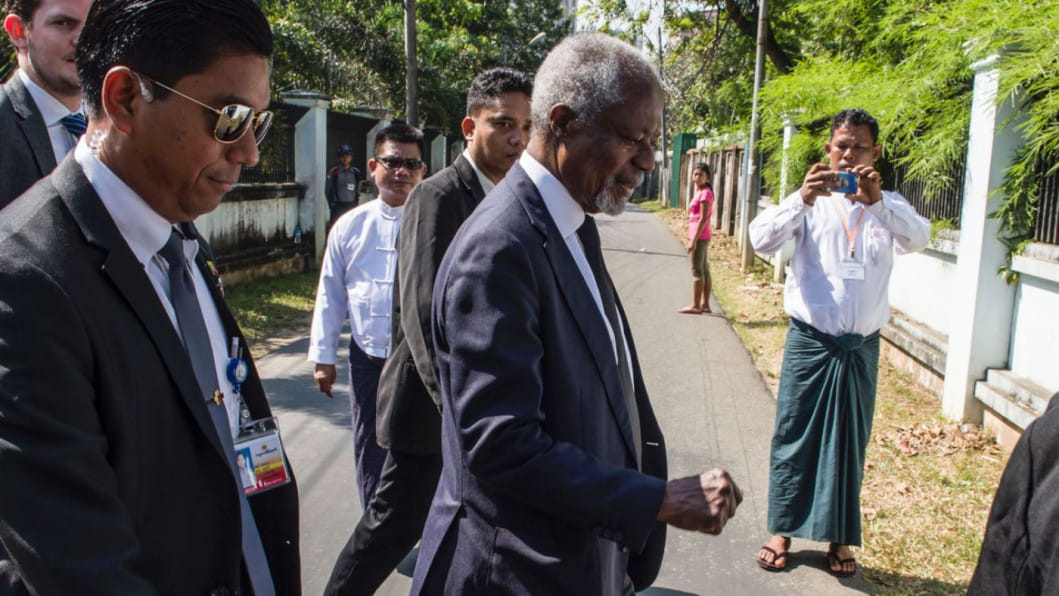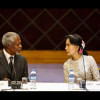Activists reject Myanmar's new Rakhine body as Annan visits

A new body set up by Myanmar's government to investigate allegations of rights abuses against Rohingya in Rakhine lacks credibility, activists said Friday, as former UN chief Kofi Annan began a visit to the troubled state.
Myanmar's de facto leader Aung San Suu Kyi has faced a growing international backlash for failing to probe claims the army is carrying out ethnic cleansing of the Muslim minority.
But rights groups rejected the new 13-member commission as toothless, noting it includes no Muslims and is led by Vice President Myint Swe, a retired army general formerly blacklisted by the United States.
A close ally of former junta leader Than Shwe, Myint Swe was head of special operations in Yangon when the military government ordered a bloody crackdown on the monk-led protests of the Saffron Revolution in 2007.
"We've got little faith in another homegrown commission, particularly if it's headed by a military man," said Matthew Smith, chief executive of Fortify Rights.
"This new commission won't be capable of conducting a credible human rights investigation, and it certainly lacks independence. The time for an independent international investigation is now."
Phil Robertson, deputy director of Human Rights Watch in Asia, said the new commission "doesn't look like it's independent or impartial".
Suu Kyi's office said the new commission would investigate the raids on police border posts on October 9 that sparked the deadly military lockdown as well as "international accusations" of army abuses.
It is the second body created by Suu Kyi to try to heal the religious divide that has split Rakhine state since deadly sectarian unrest killed more than 100 people in 2012.
In August she appointed fellow Nobel laureate Annan to head a separate body, which Buddhist nationalists have bitterly denounced as foreign meddling.
Oo Hla Saw, a senior politician from the Arakan National Party, said "the new commission will do nothing different".
"I don't have much hope for it," he told AFP.
Privately some Muslim leaders in Myanmar also said they were concerned their voices would not be represented, but asked not to be quoted for fear of reprisals.
More than 10,000 Rohingya have fled to Bangladesh in recent weeks, the United Nations said on Wednesday, fleeing a bloody army crackdown in the north of Rakhine state.
Arrivals in Bangladesh have told AFP horrifying stories of gang rape, torture and murder at the hands of Myanmar's security forces.
Myanmar has denied allegations of abuse, but has also banned foreign journalists and independent investigators from accessing the area.
On Friday, former UN chief Annan was greeted by protesters holding signs reading "Ban the Kofi Annan commission" as he touched down in Sittwe airport on his first trip to Rakhine since the crisis erupted.
Commission member Aye Lwin told AFP the trip was for "gathering facts... we won't be giving any conclusion".












Comments